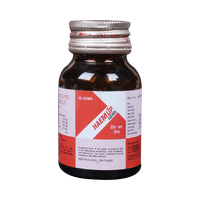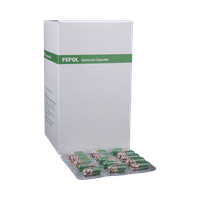food interaction for Alarm Forte
alcohol interaction for Alarm Forte
pregnancy interaction for Alarm Forte
lactation interaction for Alarm Forte
food
alcohol
pregnancy
lactation
Alarm Forte 0.5 mg/50 mg Tablet may be taken with or without food, but it is better to take it at a fixed time.
None
None
CAUTION
It is unsafe to consume alcohol with Alarm Forte 0.5 mg/50 mg Tablet.
UNSAFE
Alarm Forte 0.5 mg/50 mg Tablet is unsafe to use during pregnancy as there is definite evidence of risk to the developing baby. However, the doctor may rarely prescribe it in some life-threatening situations if the benefits are more than the potential risks. Please consult your doctor.
CONSULT YOUR DOCTOR
Alarm Forte 0.5 mg/50 mg Tablet is probably unsafe to use during breastfeeding. Limited human data suggests that the drug may pass into the breastmilk and harm the baby.
CONSULT YOUR DOCTOR
SALT INFORMATION FOR Alarm Forte
Alprazolam(0.5mg)
Uses
Alprazolam is used in the treatment of Anxiety and Panic disorder.
How it works
Alprazolam is a benzodiazepine. It works by increasing the action of a chemical messenger (GABA) which suppresses the abnormal and excessive activity of the nerve cells in the brain.
Common side effects
Memory impairment, Sleepiness, Nausea, Constipation, Difficulty in speaking, Impaired coordination, Abnormality of voluntary movements, Decreased libido, Sinus tachycardia, Ringing in ear, Difficulty in swallowing, Urinary incontinence, Nosebleeds, Hypotension (low blood pressure), Hallucination, Aggressive behavior
Sertraline(50mg)
Uses
Sertraline is used in the treatment of depression, post traumatic stress disorder, obsessive-compulsive disorder, Panic disorder, Premenstrual dysphoric disorder, Anxiety and Premenstrual syndrome (PMS).
How it works
Sertraline is a selective serotonin reuptake inhibitor (SSRI) antidepressant. It works by increasing the levels of serotonin, a chemical messenger in the brain. This improves mood and physical symptoms of depression and also relieves symptoms of obsessive-compulsive disorder, panic disorder, premenstrual dysphoric disorder, and anxiety.
Common side effects
Insomnia (difficulty in sleeping), Nausea, Diarrhea, Tremors, Abdominal pain, Decreased libido, Dizziness, Ejaculation disorder, Headache, Sleepiness, Agitation, Weight loss, Palpitations, High blood pressure, Dyslipidemia, Neuropsychiatric symptoms, Increased liver enzymes, Menstrual disorder, Dilatation of pupil, Respiratory disorder, Diabetes, Blood circulation disorder, Lymphatic system abnormalities, Joint pain, Nosebleeds
SUBSTITUTES FOR Alarm Forte
22 Substitutes
22 Substitutes
Sorted By
 Rs. 120pay 64% more per Tablet
Rs. 120pay 64% more per Tablet Rs. 84pay 15% more per Tablet
Rs. 84pay 15% more per Tablet Rs. 39.25save 46% more per Tablet
Rs. 39.25save 46% more per Tablet Rs. 47save 36% more per Tablet
Rs. 47save 36% more per Tablet Rs. 47.25save 35% more per Tablet
Rs. 47.25save 35% more per Tablet
Expert advice FOR Alarm Forte
- The addiction / habit-forming potential of this medicine is very high. Take it only as per the dose and duration advised by your doctor
- It may cause dizziness. Do not drive or do anything that requires mental focus until you know how this medicine affects you.
- Avoid consuming alcohol as it may increase dizziness and drowsiness.
- Inform your doctor if you are pregnant, planning to conceive or breastfeeding.
- Do not stop taking medication suddenly without talking to your doctor as that may lead to nausea, anxiety, agitation, flu-like symptoms, sweating, tremor, and confusion.
Frequently asked questions FOR Alarm Forte
Alprazolam
Q. What is Alprazolam used for?
Alprazolam is used to relieve excess (moderate to severe) anxiety and to treat anxiety associated with depression. It is not to be used for mild anxiety associated with the stress of day to day life situations.
Q. Is Alprazolam safe?
Alprazolam is safe if used at prescribed doses for the prescribed duration as advised by your doctor.
Q. Is Alprazolam addictive (habit-forming)?
Yes, the use of Alprazolam has addictive potential. Its use is associated with the risk of addiction for physical or psychological effects. The abrupt discontinuation of Alprazolam is therefore not advised to avoid serious withdrawal symptoms.
Sertraline
Q. Does Sertraline cause weight gain?
Sertraline commonly causes weight gain as the patient is unable to stop the urge to eat. Additionally, use of Sertraline may also lead to weight loss, though it occurs rarely. The reason for weight loss could be loss of appetite. Consult your doctor in case of any concerns regarding your weight.
Q. How long does it take for Sertraline to work?
You may start noticing an improvement in symptoms within 7 days of taking Sertraline. However, it may take longer to show full response and will vary from person to person.
Q. How long do I need to take Sertraline?
You should continue taking Sertraline as long as your doctor recommends to take it which may be for several months. Doctors usually recommend the medicine for 6 months to a year after you no longer feel depressed. It is important to know that stopping the medication before the suggested time may cause depression to come back.























